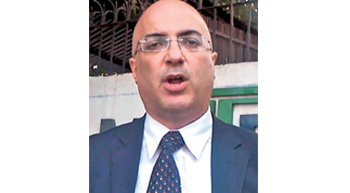Sachin Bhatia, Chief Executive Officer, Metro Infrasys, a strong advocate of free flow of traffic at toll booths, believes India is at least five years away from embracing such a scenario.
Pilferage at tolls is a huge problem today. How do you address this?
There are barriers at the tolls. The system counts and classifies the vehicles. Pictures of the vehicle are taken per transaction. The system then marries the transaction with the classification of the vehicle and the video. Then, there are features to manage the exempt vehicles and monthly passes, etc.
You are introducing a new solution for toll-ways, a first-of-its kind initiative here. What is this about?
One of the technologies we are bringing in now is a business intelligence solution. With this, we will be able to select data from different tolls and multiple platforms and pull that to a single cloud-based platform. Then, we can do a variation analysis across different projects to detect fraud. This is the Fraud and Internal Audit Online System. We are introducing it in all of our projects. The clients are giving us access to their database as well. This will give you an analysis across key parameters, for instance, the average exemption of an operator can be five per cent in one, 6 per cent in another and 7 per cent in yet another project. However, if someone is at 15 per cent, then we can look at why that is so.
How do you evaluate the toll management systems in India today?
From a viewpoint of traffic management, this is a pollution disaster. The current technology we use is a disaster as far as both pollution and the user experience is concerned. Instead of this current system, there should be free flow. There should not be any stopping at all, and a barrier-free pass. All vehicles should be equipped with tags and this must be made mandatory.
Those vehicles that do not have tags or sufficient balance should have their number plates taken and they should be impounded with ten times the toll amount. There should be a mobile squad which should have all the data and chasing the vehicles which are going without paying toll. The entire cost of enforcement – even if we are able to enforce on 50 per cent of the vehicles, – the toll that we will collect from the violating vehicles will offset the revenue loss from the others.
In the Indian context, is it possible to have these things?
Why not? Number plates are anyway getting standardised. Challaans can be sent to the homes. If addresses are not updated, then those vehicles can be stopped on the road.
Are we moving towards this as a country?
We are doing lane-wise electronic tolling, but not barrier-free. For that, the government has to underwrite the enforcement.
There is a proposal, though, isn´t there, to have something of this sort?
In fact, they had it earlier, with ICICI Bank and Axis Bank, but I believe they have pulled out from that project. Now, the government is going to have their own clearing house, and they plan to have multiple payment brands from what I understand, but that doesn´t mean free flow. Free flow is something that was started in the west more than 15 years ago. I think it will come, but the pace at which it is going looks like it is at least five years away.
I´d want it to come earlier, of course. Rightly so, today, the focus is on construction and on clearing house. The focus is not on free flow.



Leave a Reply
You must be logged in to post a comment.